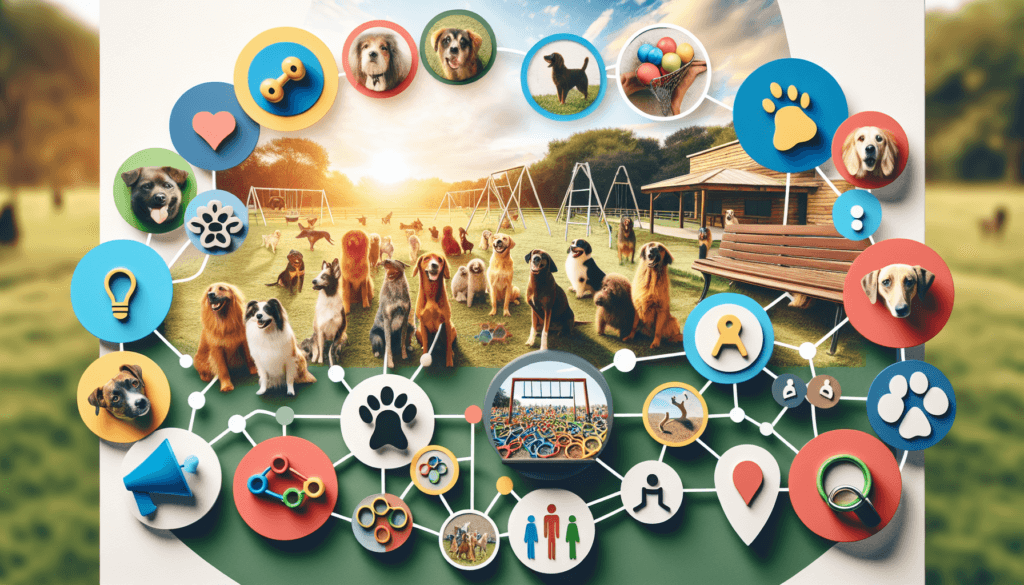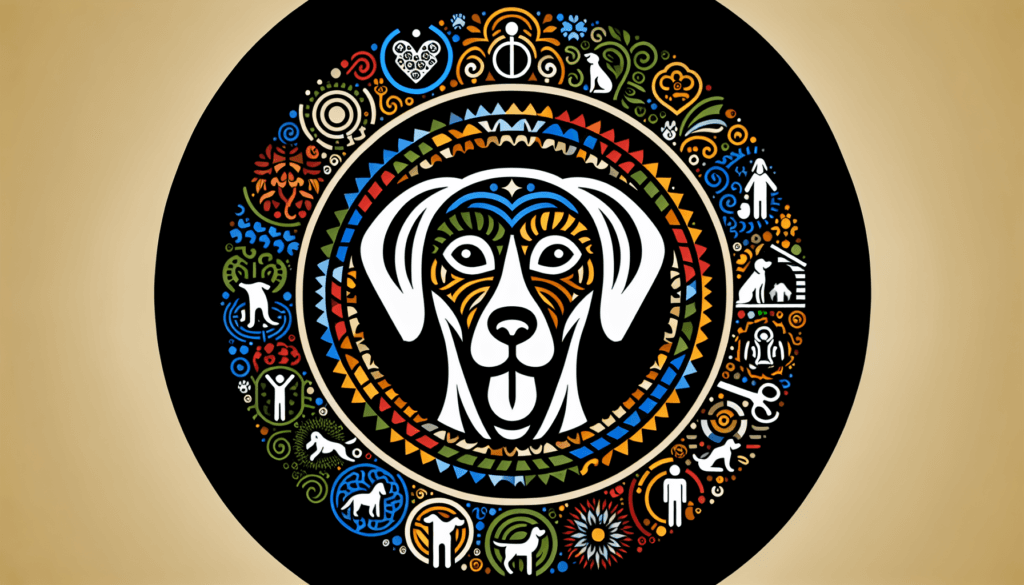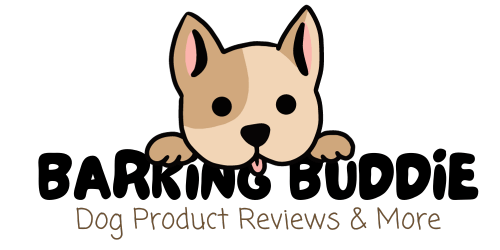Are you looking for ways to improve your dog’s socialization skills? Look no further than dog communities! In this article, we will explore how being part of a dog community can greatly benefit your furry friend’s socialization journey. From playdates with other dogs to organized group activities, these communities provide a safe and supportive environment for dogs to interact and learn from each other. Whether your dog is shy or outgoing, joining a dog community can help them build confidence, develop social skills, and make new furry friends along the way. Discover the power of dog communities and watch your pup thrive in their social interactions!

Benefits of Dog Communities for Socialization
Opportunities for Introducing Dogs to Various Social Situations
Dog communities provide a wide range of opportunities for introducing dogs to various social situations. Whether it’s a trip to the dog park, attending dog training classes, taking part in dog daycare programs, or joining dog meetup groups, these environments expose dogs to new people, dogs, and experiences. Through these interactions, dogs can learn how to navigate social situations and become more comfortable and confident in different environments.
Exposure to Different Types of Dogs
In dog communities, dogs have the chance to interact and socialize with dogs of various breeds, sizes, and temperaments. This exposure is invaluable for their social development as it helps them become familiar with different dog body language, play styles, and communication cues. By interacting with a diverse group of dogs, they learn how to adapt their behavior and play appropriately, enhancing their social skills and understanding in the process.
Learning Social Skills by Observing Other Dogs
A significant benefit of dog communities is the opportunity for dogs to observe and learn from other dogs. Just like humans, dogs can pick up social cues and behavior by watching their peers. Being in close proximity to other dogs and witnessing their interactions can teach a dog what is considered acceptable and appropriate behavior in social settings. Observing confident and well-socialized dogs can also help shy or anxious dogs gain confidence and learn to engage positively with others.
Reduction in Anxiety and Fear through Positive Experiences
Dog communities provide a safe and controlled environment for dogs to have positive social experiences. These positive interactions can help reduce anxiety and fear in dogs, particularly those who may have had negative experiences in the past. By gradually exposing them to new situations and ensuring they have positive experiences, dog communities can help dogs overcome their fears and build their socialization skills, ultimately leading to happier and more well-rounded companions.
Types of Dog Communities
Dog Parks
Dog parks are dedicated areas where dogs can socialize and exercise off-leash. They often have multiple fenced enclosures based on dog size or temperament, allowing for safe interactions between dogs. Dog parks are typically equipped with amenities such as water stations and play equipment, providing a fun and stimulating environment for dogs of all sizes and energy levels.
Dog Training Classes
Dog training classes offer an organized and structured environment for dogs and their owners to learn and practice obedience skills. These classes often include socialization exercises that allow dogs to interact with each other in a controlled setting. Not only does participating in training classes help dogs learn essential commands and behaviors, but it also provides an opportunity for socialization with other dogs and people.
Dog Daycares
Dog daycares are facilities where dogs can spend the day in a supervised and interactive environment. In addition to playtime and exercise, dog daycares typically include socialization opportunities for dogs to mingle and interact with their peers. This controlled and monitored setting allows dogs to practice their social skills while giving owners peace of mind knowing their pets are in a safe and stimulating environment.
Dog Meetup Groups
Dog meetup groups are organized gatherings where dog owners, and sometimes their dogs, come together to socialize and enjoy activities. These groups often center around specific dog breeds, interests, or locations. Meetup groups provide an excellent chance for both dogs and owners to make new friends, share experiences, and engage in various dog-friendly activities such as hikes, playdates, or training sessions.

Tips for Socializing Dogs in Communities
Start with Slow and Controlled Introductions
When introducing your dog to a new social setting, it’s essential to start with slow and controlled introductions. Gradually expose your dog to new environments, allowing them time to adjust to the sights, sounds, and smells. Begin with smaller gatherings or calmer dogs before progressing to larger groups or more energetic playmates. Giving your dog the opportunity to acclimate at their own pace will help build their confidence and reduce any anxiety or fear they may have.
Ensure a Positive and Friendly Environment
Positive and friendly environments are crucial for successful dog socialization. Choose locations that have a reputation for responsible ownership and a friendly atmosphere. Observe the interactions between dogs and their owners to ensure it is a supportive and positive environment. Friendly and respectful communication among owners promotes a harmonious atmosphere that facilitates positive socialization experiences for all dogs involved.
Use Rewards and Positive Reinforcement
Reward-based training and positive reinforcement are effective tools for socializing dogs in community settings. Give treats, praise, and affection to your dog when they exhibit desired behavior or respond well to social interactions. This positive association helps reinforce good behavior and motivates your dog to engage positively with other dogs and people. By focusing on rewarding the behaviors you want to encourage, you can help your dog develop the social skills necessary for successful interactions.
Practice Obedience Training in Social Settings
Social settings provide an excellent opportunity to practice and reinforce obedience training with your dog. Practice commands such as sit, stay, and recall in the presence of distractions, such as other dogs or new people. Incorporate these training exercises into your dog’s social experiences, rewarding them for successfully following your commands. Obedience training in social settings helps your dog learn to focus and respond to your cues even when faced with distractions, creating a well-behaved and socially adept companion.
Importance of Early Socialization
Critical Period for Learning Social Skills in Puppies
Early socialization is crucial for puppies as it falls within their critical period of development, which typically lasts from birth to about 16 weeks of age. During this period, puppies are highly receptive to new experiences and are more open to learning and forming positive associations. Introducing puppies to different people, dogs, environments, and stimuli during this critical period helps shape their behavior and lays a foundation for future socialization. Investing time and effort in early socialization can have lifelong benefits for your furry friend.
Preventing Behavioral Issues Later in Life
Proper socialization in a dog’s early stages of development can significantly reduce the risk of behavioral issues later in life. Dogs that have been adequately socialized as puppies tend to exhibit fewer fear-based behaviors, aggression, and anxiety. By exposing puppies to various social situations, you help them build resilience, adaptability, and confidence, making them less likely to develop behavioral problems as adults. The effort put into early socialization pays off in the form of a well-adjusted and well-behaved companion.
Increasing Resilience and Confidence in Dogs
Socialization plays a critical role in increasing a dog’s resilience and confidence. When dogs are exposed to different environments, people, and dogs from a young age, they become more adaptable and resilient in handling new or challenging situations. Experiences in dog communities help build their confidence and teach them how to navigate diverse social interactions. A well-socialized dog is more likely to exhibit appropriate behavior, feel secure when faced with new environments, and develop robust coping mechanisms, resulting in a happier and more confident pet.

Risks and Challenges of Dog Communities
Potential Exposure to Aggressive Dogs
While dog communities provide opportunities for positive social experiences, there is always a risk of potential exposure to aggressive dogs. Not all dogs in these settings may be well-behaved or appropriately socialized. It is crucial for dog owners to remain vigilant and attentive to their dog’s behavior and body language, as well as the behavior of other dogs present. If you notice signs of aggressive behavior or tension, it is best to remove your dog from the situation and seek professional guidance if necessary.
Overstimulation and Exhaustion
Dog communities and socialization activities can sometimes lead to overstimulation and exhaustion in dogs. Intense play sessions or constant interaction with other dogs can be physically and mentally draining for some dogs, especially those with lower exercise tolerance or anxious tendencies. It’s important to monitor your dog’s energy levels and provide breaks and rest periods as needed. Recognizing the signs of fatigue or overstimulation, such as excessive panting, decreased engagement, or avoiding social interactions, will help you ensure your dog’s well-being.
Lack of Responsible Ownership and Supervision
One challenge in some dog communities is the lack of responsible ownership and supervision. Not all dog owners may prioritize proper training, vaccination, or maintaining control over their dogs. It is essential to assess the atmosphere and culture of a dog community before participating to ensure that responsible ownership is valued. Your dog’s safety and well-being should always be a top priority, so choose communities where responsible ownership and supervision are actively encouraged and enforced.
Dog Communities for Special Needs Dogs
Benefits of Socialization for Special Needs Dogs
Socialization is equally important for special needs dogs, if not more so. Dogs with special needs, such as physical disabilities or specific behavioral challenges, can greatly benefit from being exposed to different social situations in a controlled environment. Proper socialization can help them build confidence, reduce fear or anxiety, and improve their overall quality of life. Special needs dogs can learn to adapt and interact positively with people and other dogs, helping them lead fulfilling and enriched lives.
Adapted Programs and Services for Special Needs Dogs
Many dog communities recognize the importance of including and accommodating special needs dogs. They often offer adapted programs and services tailored to the specific needs of these dogs. These programs may focus on sensory experiences, social integration, or specialized training techniques. The presence of specialized services ensures that all dogs, regardless of their unique needs, can partake in socialization activities and reap the benefits of being part of a dog community.
Supportive Community for Special Needs Dog Owners
Beyond the benefits for special needs dogs themselves, dog communities can also be an invaluable support network for the owners of these dogs. Connecting with other pet owners who have experience and understanding of the challenges and joys of caring for a special needs dog can provide a sense of camaraderie and mutual support. Sharing knowledge, experiences, and resources within the community can help special needs dog owners navigate the unique aspects of their dog’s care and enhance their overall well-being.

Dog Communities as Support Networks for Owners
Sharing Knowledge and Experiences
Dog communities serve as excellent platforms for owners to share knowledge and experiences with fellow dog enthusiasts. Whether it’s discussing training techniques, nutrition advice, or behavioral challenges, engaging with other owners can provide valuable insights and perspectives. Through these interactions, owners can gain new insights into dog care, explore different training methods, and find solutions to common problems, creating a supportive network of individuals with a shared passion for dogs.
Emotional Support and Companionship
Having a support network of like-minded individuals in a dog community can offer emotional support and companionship to dog owners. Dogs play a significant role in our lives, and having others who understand the joys and challenges of pet ownership can be comforting. Sharing stories, celebrating successes, and offering support during difficult times creates a sense of belonging and camaraderie among owners. The shared love for dogs creates meaningful connections that reinforce the importance of dogs in our lives.
Access to Professional Resources and Advice
Dog communities often attract professionals, such as trainers, behaviorists, and veterinarians, who actively participate and share their expertise. This provides an excellent opportunity for owners to have access to professional resources and advice for their dogs. Whether it’s obtaining training recommendations, behavior modification techniques, or health-related information, dog communities can be a valuable source of expert guidance. Being part of a community that includes professionals allows owners to stay informed and make informed decisions about their dog’s well-being.
Combining Dog Community Activities with Training
Reinforcing Training in Different Environments
Engaging in dog community activities provides a unique opportunity to reinforce training in various environments. Dogs can practice and refine their training commands, such as sit, stay, or recall, amidst distractions and real-life scenarios. By incorporating training exercises into community activities, owners can help their dogs generalize and apply learned behaviors in different settings, ensuring reliable obedience regardless of the surroundings. This reinforcement strengthens the bond between dog and owner while enhancing the dog’s ability to respond obediently in any social situation.
Developing Distraction Tolerance
One of the challenges in dog training is teaching dogs to focus and maintain obedience in the face of distractions. Dog community activities offer a wealth of distractions, including other dogs, people, and new environments. Engaging in these activities can help dogs develop the necessary tolerance for distractions, gradually improving their ability to concentrate and follow commands despite potential distractions. Mastering distraction tolerance through community activities contributes to a well-behaved dog who can confidently navigate various situations.
Improving Communication and Bond with the Dog
Participating in dog community activities allows owners to deepen their communication and bond with their dogs. Through these shared experiences, owners can better understand their dog’s body language, preferences, and needs. Effectively communicating with their dog becomes more intuitive, allowing for a stronger connection and relationship. Engaging in community activities together fosters trust and cooperation, leading to a harmonious and enjoyable partnership between owner and dog.

Building Strong Relationships with Other Dog Owners
Networking and Socializing with Like-Minded Individuals
Dog communities provide an opportunity for dog owners to network and socialize with like-minded individuals. Engaging with other owners who share a passion for dogs can lead to meaningful connections and friendships. These relationships offer a sense of community and create a supportive network of individuals who understand the joys and challenges of dog ownership. Networking within dog communities can result in lasting friendships and open doors to new opportunities and experiences for both dogs and owners.
Organizing Playdates and Group Activities
Being part of a dog community allows owners to organize playdates and group activities for their dogs. These events provide opportunities for dogs to interact and socialize under controlled and supervised conditions. From organized agility courses to casual walks in the park, playdates and group activities create a fun and stimulating environment for dogs to learn, exercise, and engage with their peers. Organizing such activities strengthens the bond between dog owners while providing enriching experiences for the dogs themselves.
Sharing Responsibilities and Resources
Dog communities often foster a sense of camaraderie and shared responsibility among owners. This shared responsibility can include tasks such as dog sitting, sharing resources, or offering support during times of need. Being part of a community allows owners to lean on one another, reducing the burden of dog ownership and providing a support system to rely on. Whether it’s lending a helping hand during an emergency or sharing tips and resources, the culture of sharing within dog communities enhances the overall well-being of dogs and their owners.
Responsible Ownership in Dog Communities
Adhering to Community Rules and Guidelines
When participating in dog communities, it is crucial to adhere to the established rules and guidelines. These rules, set for the safety and well-being of all dogs and owners, are in place to maintain a positive and respectful environment. Familiarize yourself with the specific rules and expectations of each community, such as leash regulations, vaccination requirements, and waste clean-up policies. Respecting and following these rules demonstrates responsible ownership and helps ensure a harmonious experience for everyone involved.
Ensuring Dog Vaccinations and Health Care
Responsible ownership within dog communities requires ensuring that your dog is up to date on vaccinations and receives proper health care. Regular visits to the veterinarian, vaccinations, and preventative treatments, such as flea and tick control, are essential to keep your dog healthy and protect the well-being of other dogs in the community. Compliance with healthcare requirements not only demonstrates responsible ownership but also safeguards the health and safety of the entire dog community.
Picking Up After Your Dog
One crucial responsibility of dog owners in any community is to clean up after their dogs. Proper waste disposal ensures a clean and sanitary environment for all to enjoy. Carry waste disposal bags and promptly clean up after your dog, both in designated areas and when out on walks. Failing to pick up after your dog not only creates an unpleasant environment but can also pose health risks to other dogs and community members. Responsible ownership requires being considerate of others and taking pride in maintaining a clean and hygienic community for all.
In conclusion, dog communities offer a multitude of benefits for socializing dogs, providing opportunities for introducing dogs to various social situations, exposure to different types of dogs, learning social skills by observing other dogs, and reducing anxiety and fear through positive experiences. There are different types of dog communities, including dog parks, dog training classes, dog daycares, and dog meetup groups, each catering to unique socialization needs. Tips for socializing dogs in communities include starting with slow and controlled introductions, ensuring a positive and friendly environment, using rewards and positive reinforcement, and practicing obedience training in social settings. Early socialization plays a crucial role in a dog’s development, preventing behavioral issues, and increasing resilience and confidence. However, there are risks and challenges in dog communities, such as exposure to aggressive dogs, overstimulation, and the lack of responsible ownership and supervision. Dog communities also cater to special needs dogs, providing adapted programs, and a supportive community for both the dogs and their owners. Additionally, dog communities serve as support networks for owners, offering opportunities for knowledge sharing, emotional support, and access to professional resources and advice. Combining dog community activities with training helps reinforce obedience, develop distraction tolerance, and improve communication and bond with the dog. Building strong relationships with other dog owners is another advantage of dog communities, allowing for networking, organizing playdates, and sharing responsibilities and resources. Responsible ownership is vital in dog communities, involving adhering to community rules and guidelines, ensuring dog vaccinations and health care, and picking up after your dog. Overall, dog communities play a crucial role in socializing dogs and fostering a supportive environment for both dogs and their owners.


